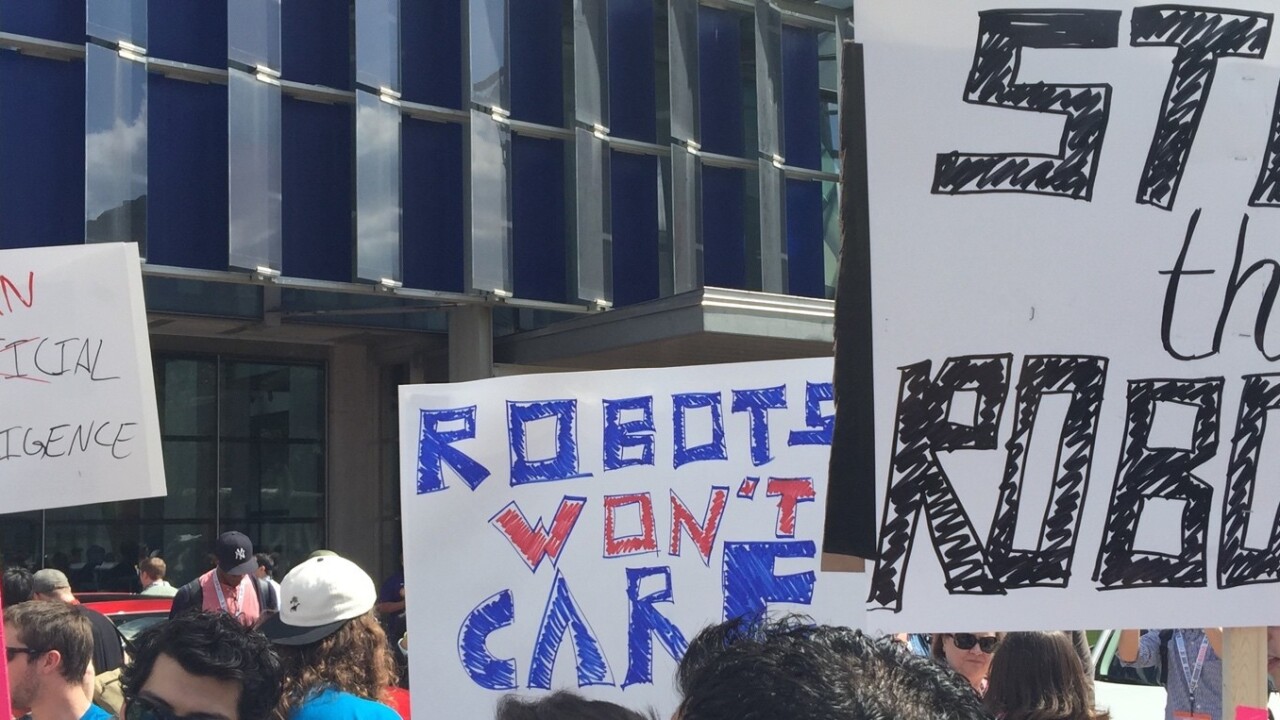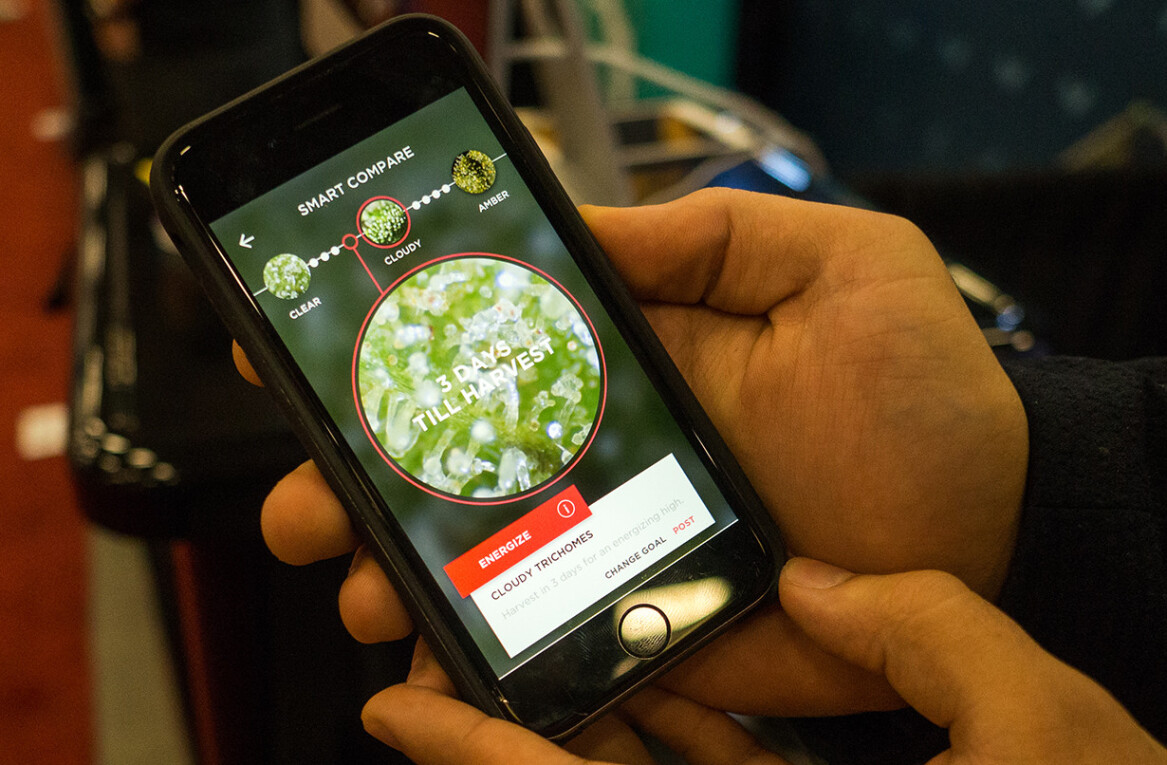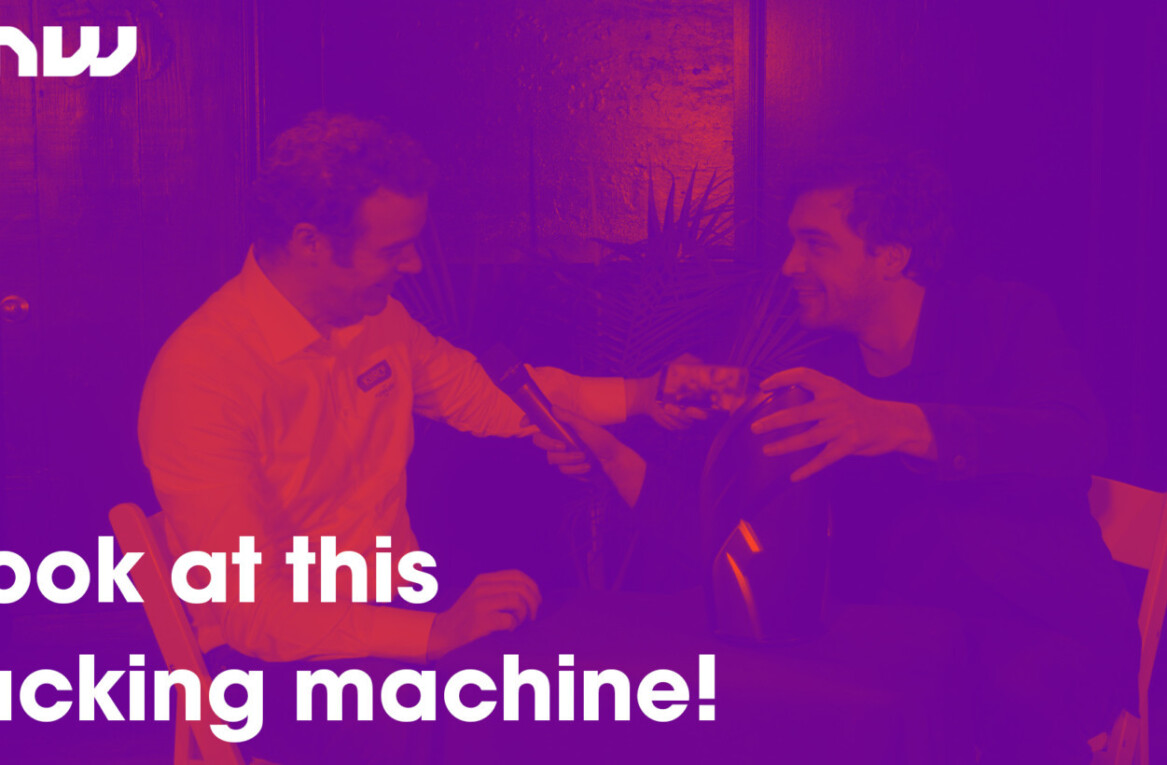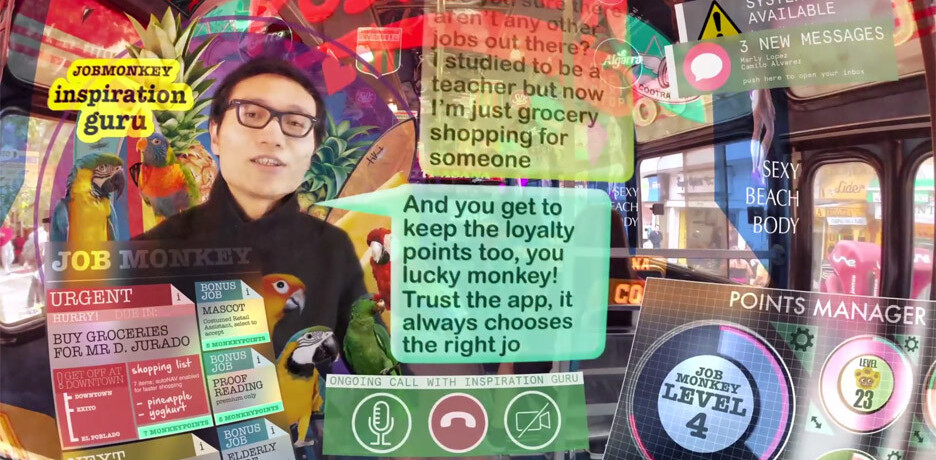
The struggle to get attention at the annual scrum that is SXSW can lead to people take desperate measures. Unfortunately, that sometimes means flat-out lying to reporters.
The picture above is of a ‘Stop the Robots’ demonstration that I stumbled upon in Austin city center last weekend. Capturing the anti-AI sentiment expressed by prominent names like Stephen Hawking and Elon Musk, they chanted “AI, say goodbye – they say robots, we say no bots.”
I didn’t quite think it was worth writing about on TNW but I witnessed the leader of the protesters being interviewed by USA Today, and a number of other news reports emerged about it that day. I did tweet out a video though…
#stoptherobots protest at #sxsw pic.twitter.com/BJDq4zvtnu
— Martin Bryant (@MartinSFP) March 14, 2015
The problem was that the leader of the protest was flat-out lying. He was asked if this was a publicity stunt and he said “no.” It turned out, later in the week, that it was indeed a stunt to promote a dating app. His name, Adam Mason, was a pseudonym too – one that was even used on air in a BBC radio interview.
The two main flaws here are:
- Lying to reporters is dumb. Dodge a question if you like but to tell a lie means you’re not going to be trusted in the future. I heard ‘Mason’ tell a USA Today journalist that it was not a publicity stunt.
- Once reporters have been lied to, will they actually want to talk about your app when they find out about your ruse? TechCrunch, for example, simply added an update saying that the protest was a publicity stunt, without saying the name of the app it was promoting. I can imagine I’d have done the same if I’d have written a piece about it. Even if they do, you’ll have left a nasty taste in their mouth.
It’s sad that the pro-Open Carry protesters standing in the same spot a couple of days later were more sincere about their desire to walk around in public with guns (that could kill people today) than a bunch of geeks were about the need for a debate on whether artificial intelligence will kill us all in the future.
‘Stop the Robots’ claim their concerns are real, but the context of ‘We’re doing this to promote an app’ is just too important to leave out of interviews.
‘But shouldn’t journalists check out stories and not take them at face value?’ you might ask. Of course, and io9 did a good job of digging into Stop the Robots’ origins. Still, if the reason you’re lying is to promote your app to people you hope will write about it again in the future… well it’s a strange route to take.
So, a PR backfire there. A superintelligent AI wouldn’t have made that mistake, I’m sure. It wasn’t the only case of AI-related lies at SXSW, either. The movie Ex Machina was promoted by a bot that chatted up Tinder users, fooling them into thinking they were about to get lucky with an attractive woman.
Advertising is all about stretching the truth and invoking emotions, but that emotion shouldn’t end up being “I’ll never trust those damn liars again.”
A version of this article appeared in the TNW Weekly newsletter. Subscribe for free to get next week’s edition.
Get the TNW newsletter
Get the most important tech news in your inbox each week.




